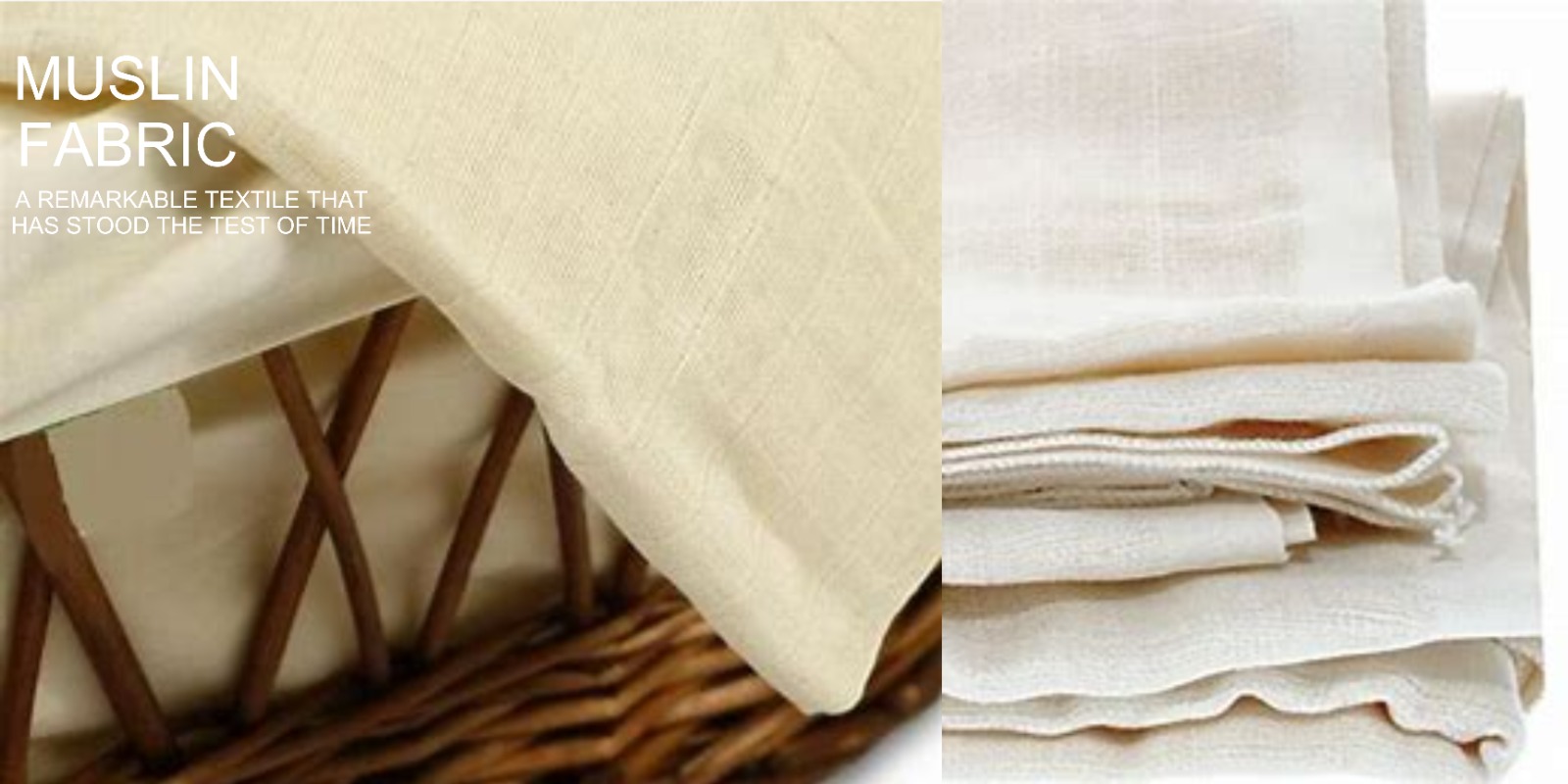
Muslin Fabric: Unveiling Its Wonders

Muslin fabric is typically made from finely spun cotton yarns, woven with a plain weave technique resulting in its balanced and durable texture. It usually has a plain, unbleached or white color, and can be dyed or printed in various colors and patterns. From its fascinating origins in Bengal to its widespread use in various industries today, muslin cotton captivates with its exceptional qualities.

Origin of Muslin Cotton
Pure Muslin fabric has a rich history that dates back centuries. It originated in the ancient civilization of Bengal (present-day Bangladesh and parts of West Bengal, India) and gained prominence during the Mughal era.
The word "muslin" is believed to have been derived from "Mushroom," a Bengali word meaning "worn by queens."
Muslin fabric quickly gained popularity due to its exquisite quality and became highly sought after in the global textile trade. Organic muslin fabric is also highly valued for its sustainability and eco-friendly characteristics.
Production Process: From Cotton to Muslin
Muslin material is made from the finest cotton fibers, which undergo a meticulous production process to ensure its superior quality.
The process begins with cotton harvesting, followed by ginning to separate the cotton fibers from the seeds. The fibers are then cleaned, carded, and spun to form yarn. Next, the yarn is woven using a plain weave technique, creating muslin fabric. The cotton muslin fabric is then carefully finished to enhance its softness and drape.

Properties and Benefits of Pure Muslin Fabric
Muslin fabric possesses a range of characteristics and properties that contribute to its appeal and versatility.
Softness: Muslin fabric is renowned for its soft and smooth texture, making it gentle against the skin.
Breathability: The loose weave of muslin fabric allows air to circulate freely, ensuring excellent breathability and comfort.
Lightweight: Muslin fabric is lightweight, making it ideal for warm climates and summer garments.
Durability: Despite its lightweight nature, muslin fabric is surprisingly durable and can withstand regular wear and washing.
Versatility: Muslin fabric's versatility knows no bounds, as it can be used for clothing, home textiles, accessories, and more.
Natural and Sustainable: Muslin fabric is typically made from natural fibers, such as cotton and bamboo, making it an eco-friendly choice.
Affordability: Muslin fabric is often more affordable compared to other textiles, making it accessible to a broader range of consumers.

Varieties of Muslin Fabric

Cotton Muslin - Most common and widely used type of muslin fabric. It is known for its softness, breathability, and ability to drape beautifully. Muslin Cotton is a versatile fabric that is ideal for a wide range of applications, from apparel and home textiles to crafts and upholstery.
Organic Muslin - Produced from cotton that has been grown without the use of synthetic pesticides or fertilizers. It is an eco-friendly option that is favored by those seeking sustainable and chemical-free textiles. Organic muslin shares the same properties as conventional cotton muslin but with the added benefit of being environmentally conscious.
Bamboo Muslin - Variety of muslin fabric that has gained popularity in recent years. It is made from bamboo fibers, which are known for their exceptional softness and moisture-wicking properties. Bamboo muslin is highly breathable, making it an excellent choice for baby products, such as swaddles and blankets.
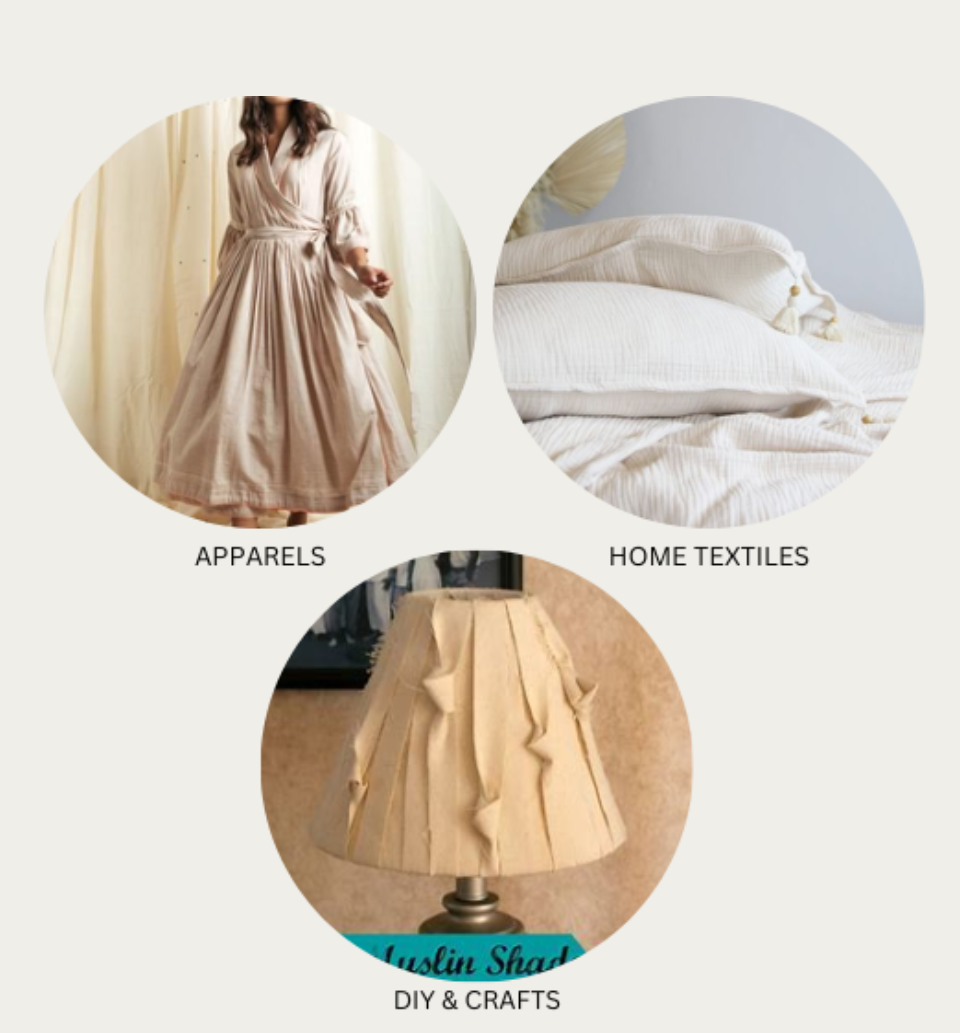
Applications of Muslin Cotton
Apparel: Muslin fabric is a favorite among fashion designers and dressmakers due to its versatility and draping qualities. It is often used for creating sample garments, making it an essential fabric in the fashion industry. Muslin fabric is also popular for making dresses, blouses, skirts, and lightweight summer clothing.
Home Textiles: Muslin fabric lends itself well to home textile applications, such as curtains, drapes, bed linens, and upholstery. Its softness and breathability make it a great choice for creating comfortable and cozy living spaces.
Crafts and DIY Projects: Muslin fabric's affordability and versatility make it a go-to material for crafters and DIY enthusiasts. It is commonly used for quilting, embroidery, doll-making, and other creative projects that require a lightweight and easy-to-work-with fabric.
Care and Maintenance of Muslin Fabric
To ensure the longevity and beauty of muslin fabric, it is essential to follow proper care and maintenance practices. Here are some tips to keep your muslin fabric in pristine condition:
Washing: Muslin fabric is generally machine washable. However, it is recommended to follow the care instructions provided by the manufacturer.
Drying: Air drying muslin fabric is preferred to maintain its softness and prevent shrinkage. If using a dryer, select a low-heat setting.
Ironing: Use a low to medium heat setting when ironing muslin fabric to avoid damaging the fibers.
Storage: Store muslin fabric in a cool, dry place away from direct sunlight to prevent discoloration and degradation.
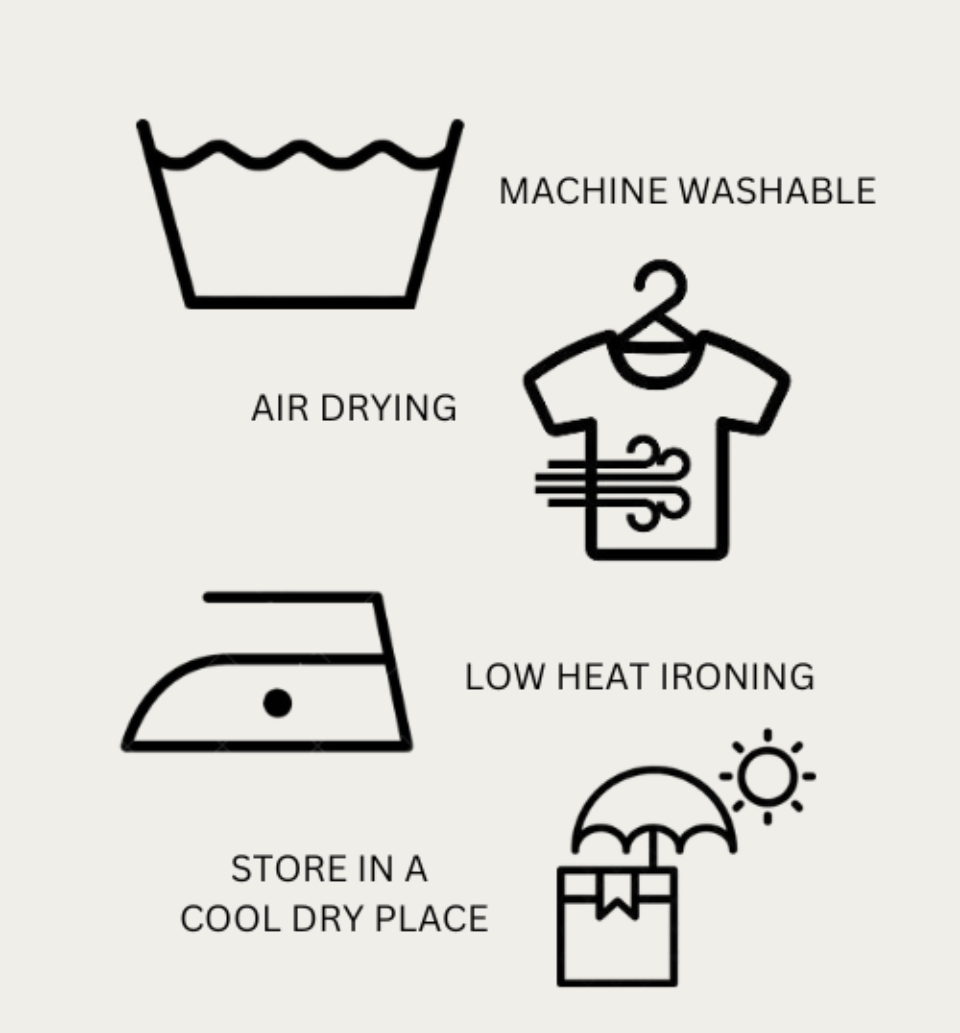
muslin fabric
Is muslin fabric suitable for summer clothing?
arrow_drop_downYes, muslin fabric is an excellent choice for summer garments due to its lightweight and breathable properties. It helps keep you cool and comfortable in hot and humid weather.
Can cotton muslin fabric be used for making reusable produce bags or eco-friendly packaging?
arrow_drop_downAbsolutely! It is durable, washable, and provides a breathable environment for storing clothes, accessories and natural fabrics.
Is cotton muslin fabric suitable for embroidery or hand stitching?
arrow_drop_downYes, cotton muslin fabric is a popular choice for embroidery and hand stitchings. Its lightweight and smooth texture make it easy to work with, allowing intricate designs to be created with ease.
Can muslin fabric be dyed or printed with designs?
arrow_drop_downCertainly! Muslin and other organic fabrics readily accepts dyes, allowing for vibrant and long-lasting colors. It is also an excellent canvas for block printing, screen printing, and other design techniques, making it a favorite among textile artists and designers.
Where can I purchase muslin fabric?
arrow_drop_downMuslin fabric is readily available in fabric stores, both online and offline. You can also find a wide selection of muslin fabric in specialty textile shops, eco-friendly boutiques, and online platforms like Anuprerna
More Blogs
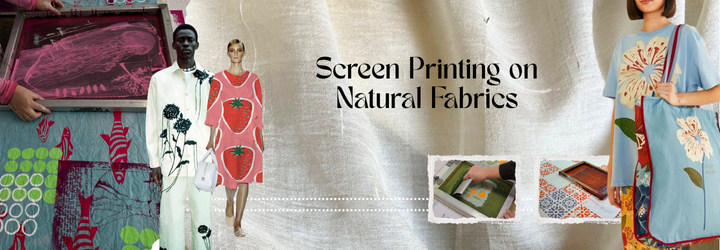
screen printing on natural fabrics: what experience teaches that manuals don’t
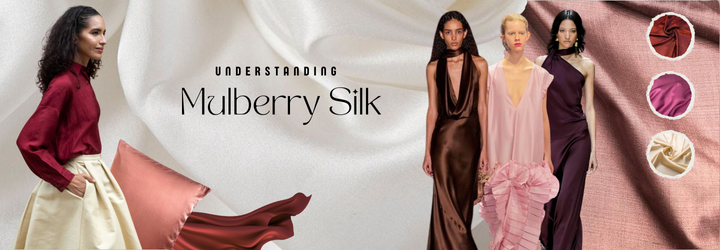
understanding mulberry silk quality: what designers often miss and why it matters
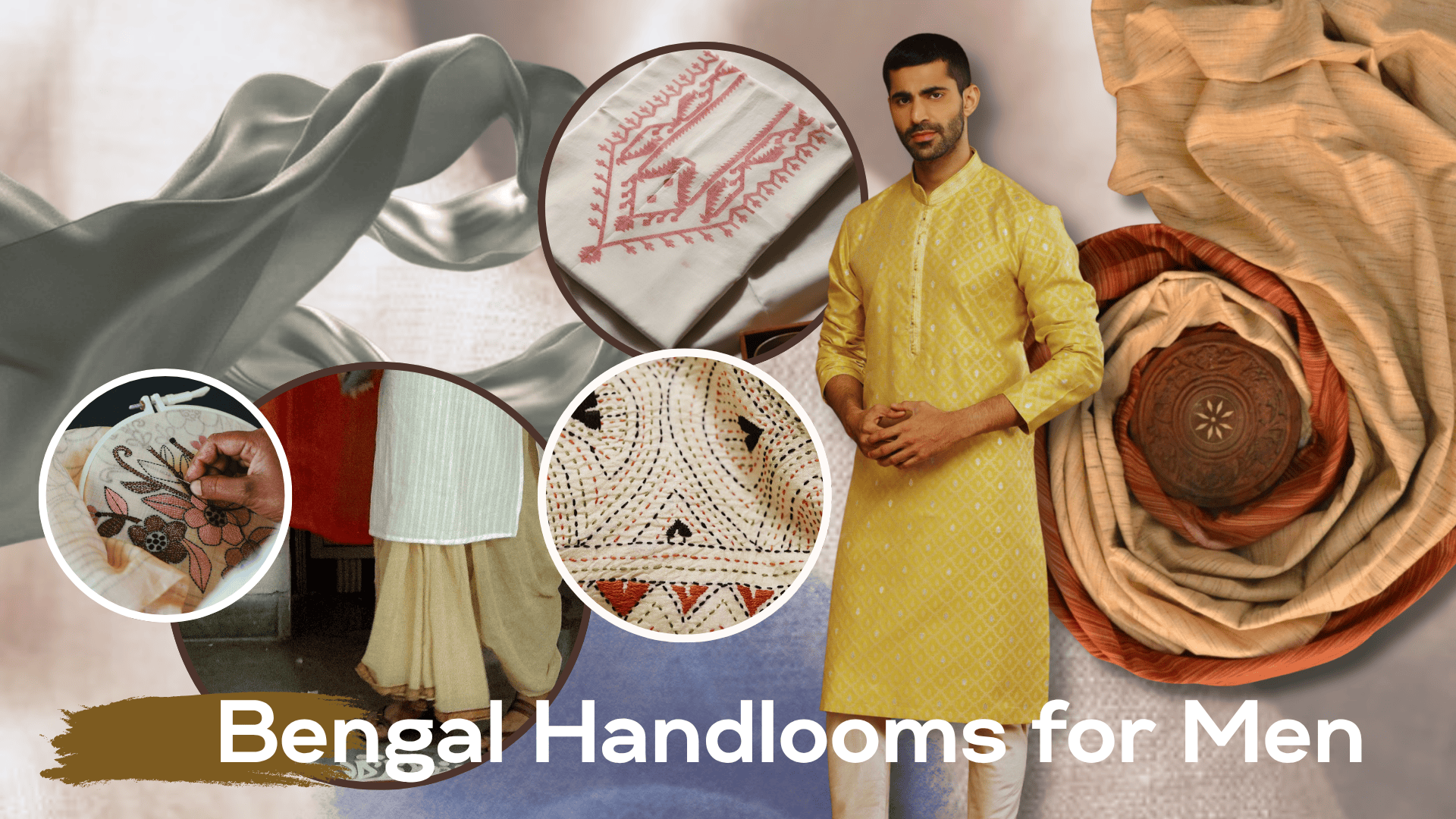
bengal looms for men: beyond the kurta
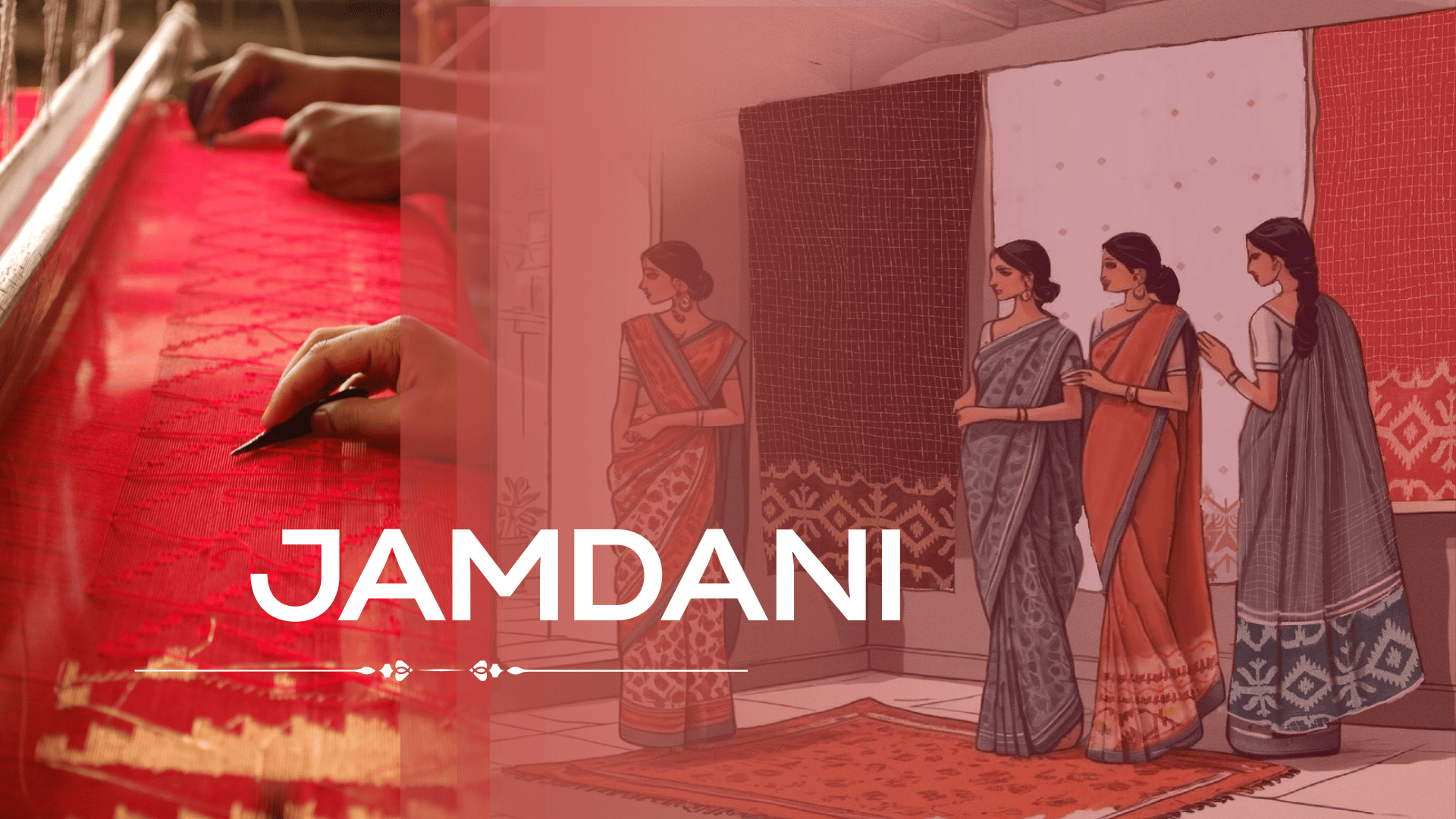
jamdani magic: why this weave is unesco-recognized as cultural heritage
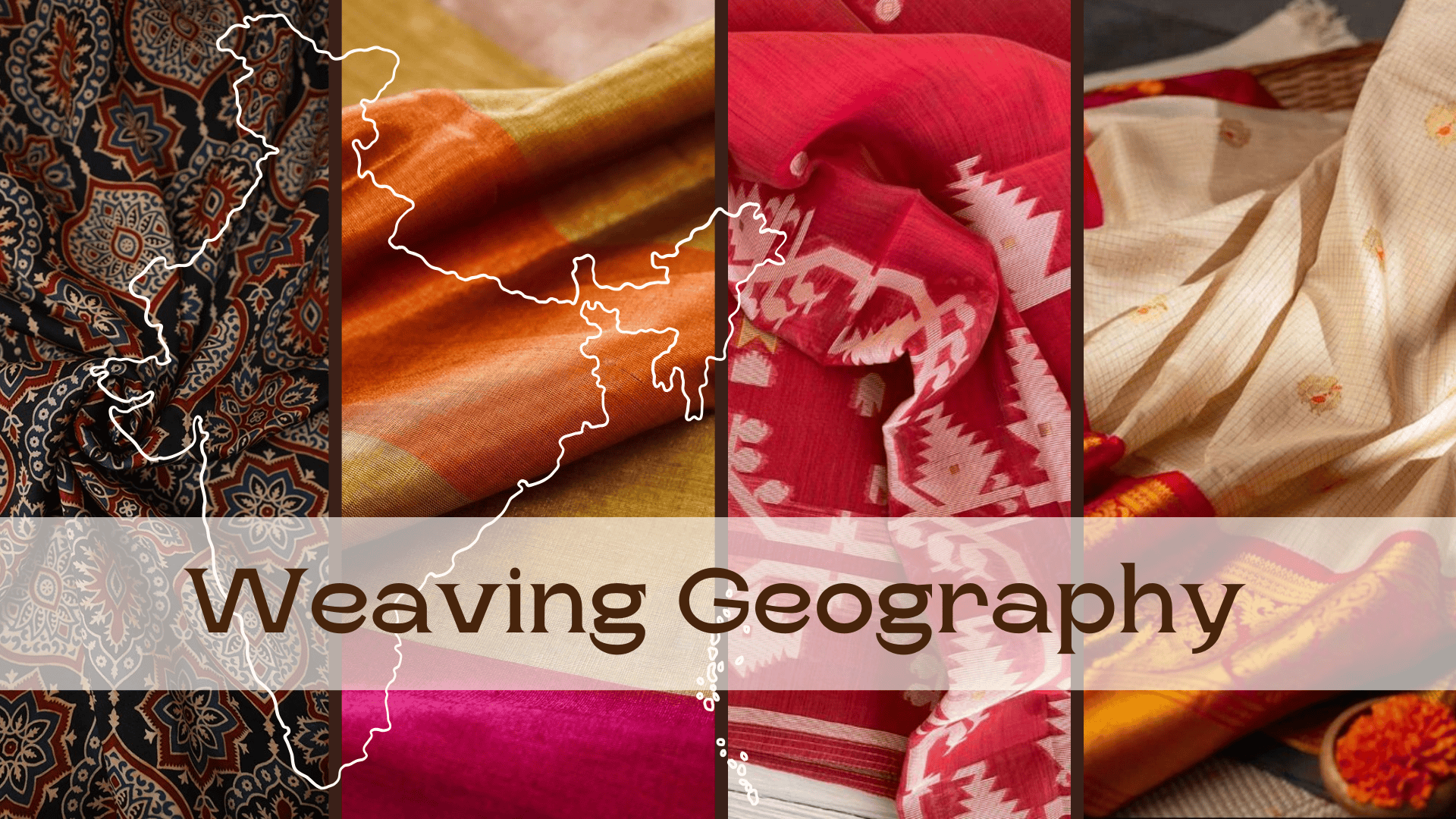
weaving geography: which district is known for which handloom fabrics
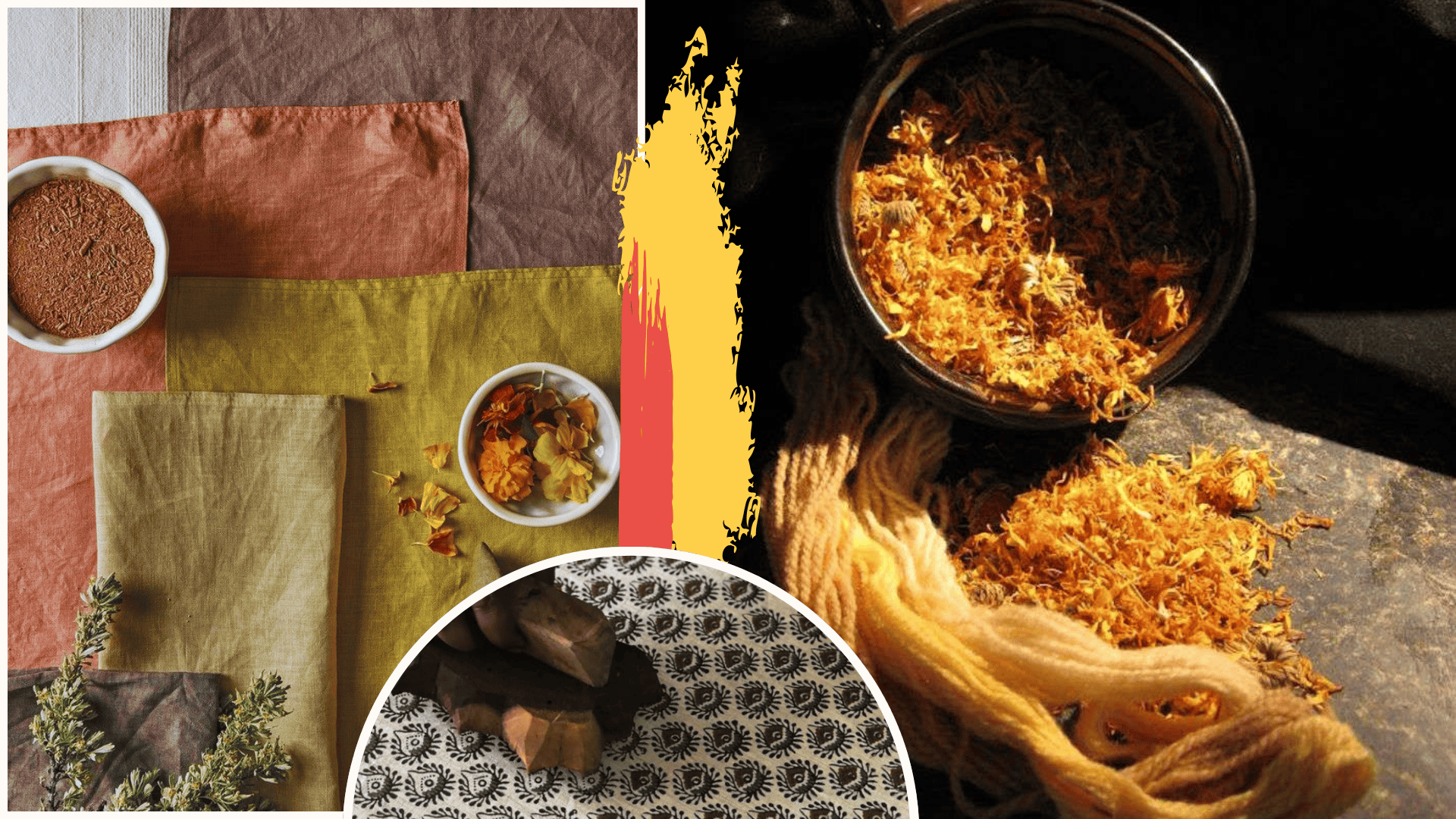
the ultimate guide to naturally dyed and block printing textiles






